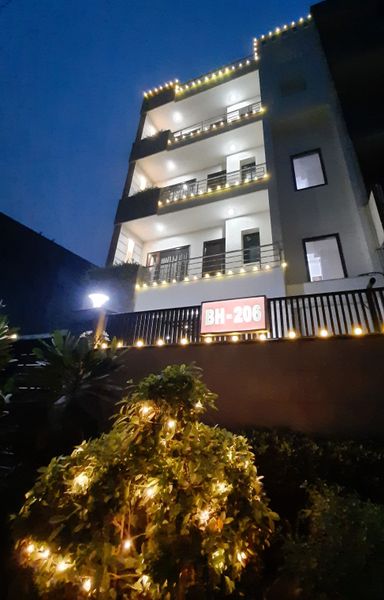Understanding the Role of a Bitcoin Miner in the Cryptocurrency Ecosystem
 Cloe Anderson
28 May, 2025
8 mins read
217
Cloe Anderson
28 May, 2025
8 mins read
217

In the rapidly evolving world of cryptocurrency, the term bitcoin miner is often heard, yet frequently misunderstood. As the foundation of the Bitcoin network, bitcoin miners are crucial in maintaining the system’s integrity and enabling transactions. This article explores the essential functions of a bitcoin miner, how mining works, the technology behind it, and its broader implications in the blockchain landscape.
What Is a Bitcoin Miner?
A bitcoin miner is an individual or a group that uses computing power to validate and confirm transactions on the Bitcoin blockchain. This process, known as cryptocurrency mining, involves solving complex cryptographic puzzles. Once a puzzle is solved, a new block is added to the blockchain, and the miner receives a reward in the form of newly minted bitcoins.
Miners are essentially the backbone of the Bitcoin network, ensuring that transactions are processed securely and without the need for a centralized authority. They perform the dual function of validating transactions and introducing new bitcoins into circulation, aligning economic incentives with network maintenance.
How Bitcoin Mining Works
The mining process is highly technical. It revolves around the concept of proof-of-work (PoW), a consensus algorithm used by Bitcoin to maintain security and transparency. Each bitcoin miner competes to solve a mathematical equation that requires significant computational power. The first miner to solve the equation gets to add the next block to the blockchain and earns a block reward.
These equations, or hashes, are designed to be hard to solve but easy to verify, ensuring that the network remains secure. Over time, the difficulty of these puzzles adjusts in response to the total network hash rate, which is the collective processing power of all miners participating in the system.
Mining Hardware and Efficiency
To become a successful bitcoin miner, one needs specialized hardware. Early miners used standard CPUs and GPUs, but the increasing difficulty of mining led to the development of Application-Specific Integrated Circuits (ASICs). These machines are specifically designed for mining cryptocurrencies and offer superior efficiency and processing power.
The efficiency of mining hardware directly impacts profitability. ASIC miners consume significant amounts of electricity, and energy costs can greatly influence a miner's net earnings. As a result, bitcoin miners often seek locations with access to cheap electricity and cooler climates to manage energy consumption and heat output.
The Economics of Bitcoin Mining
Bitcoin mining is not just a technical process; it’s an economic activity. The reward structure is designed to incentivize participation while ensuring a controlled supply of bitcoins. Currently, the block reward stands at 6.25 bitcoins per block, though this amount halves approximately every four years in an event known as the Bitcoin halving. This mechanism ensures scarcity, contributing to Bitcoin’s value proposition as a digital asset.
However, profitability in mining is not guaranteed. Factors such as mining difficulty, bitcoin price volatility, hardware efficiency, and electricity costs all play a role. This has led to the rise of mining pools, where individual miners combine their resources to improve their chances of earning rewards.
Environmental Concerns and Solutions
One of the most controversial aspects of bitcoin mining is its environmental impact. The high energy consumption associated with mining operations has sparked debates about sustainability. Critics argue that mining contributes to carbon emissions, especially in regions where electricity is generated from fossil fuels.
In response, the industry is witnessing a shift toward more sustainable practices. Renewable energy sources such as hydro, solar, and wind are increasingly being used to power mining farms. Some bitcoin miners are also experimenting with energy-efficient hardware and software optimizations to reduce their carbon footprint.
The Future of Bitcoin Mining
As the Bitcoin network continues to grow, so too does the complexity of mining. Innovations in hardware and improvements in energy efficiency will likely shape the future landscape. Furthermore, regulatory developments could influence where and how mining operations are set up.
There is also a growing interest in decentralized and eco-friendly alternatives to proof-of-work, such as proof-of-stake (PoS). While Bitcoin is unlikely to switch consensus mechanisms, the broader cryptocurrency mining ecosystem is evolving, with newer networks exploring more sustainable options.
Moreover, as the block reward decreases over time, transaction fees may become the primary source of income for bitcoin miners. This could shift their focus toward securing high-value transactions and optimizing their infrastructure for long-term viability.
Conclusion
The role of a bitcoin miner goes far beyond solving equations. Miners uphold the very framework of the Bitcoin network, contributing to its decentralization, security, and continued operation. As the world becomes more digitized and blockchain technology matures, the role of mining—while evolving—remains central to the success of decentralized financial systems.

Understanding what it means to be a bitcoin miner today involves appreciating both the technical challenges and the economic incentives that drive the process. As public awareness and regulatory scrutiny increase, the mining industry is likely to face significant transformation. Yet, its core function—securing and validating the Bitcoin ledger—remains a testament to the power of decentralized consensus.
Written By:
Cloe Anderson



Hotels at your convenience
Now choose your stay according to your preference. From finding a place for your dream destination or a mere weekend getaway to business accommodations or brief stay, we have got you covered. Explore hotels as per your mood.


